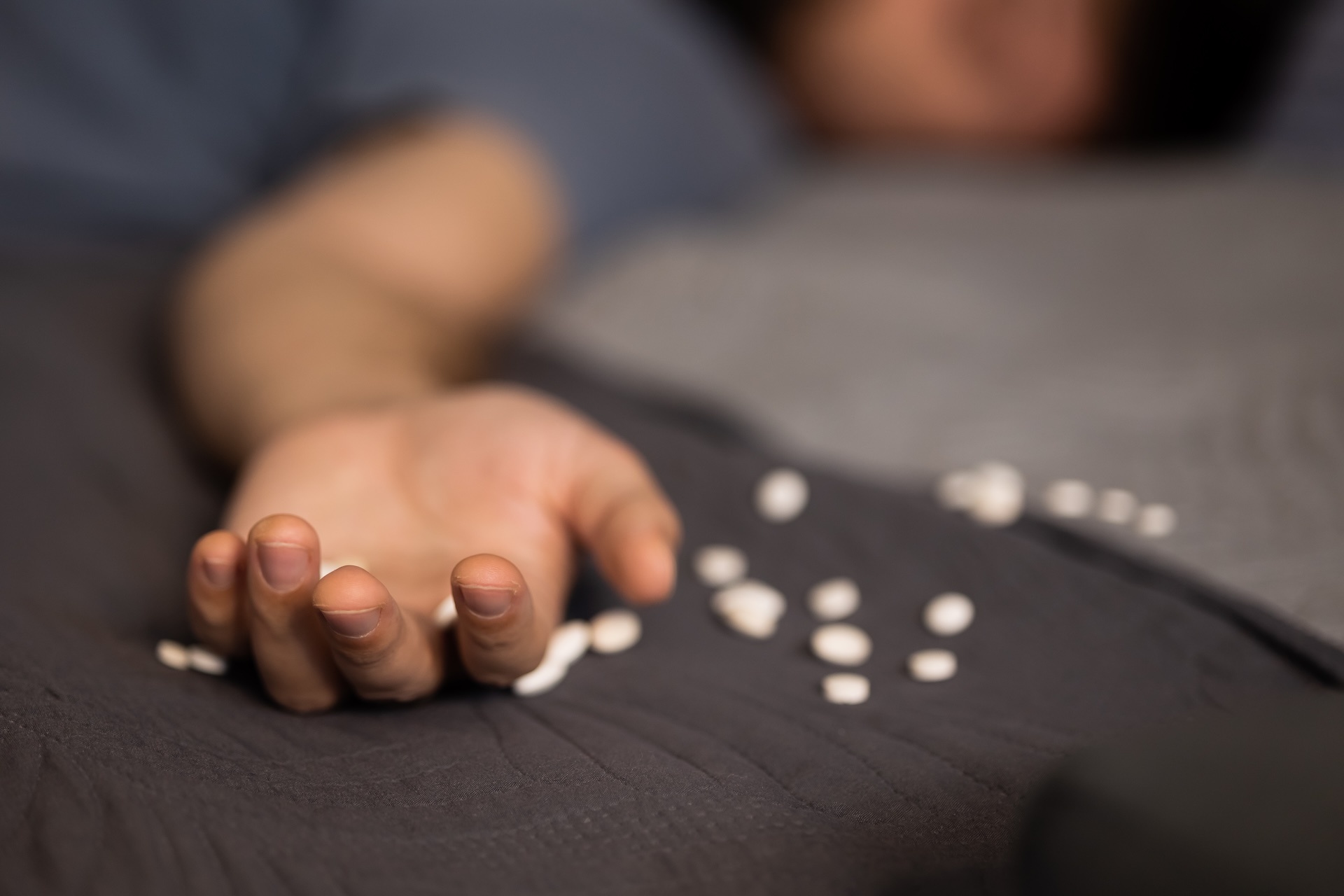Healing From Vicodin Addiction


Discover effective Vicodin addiction treatment programs designed to support lasting recovery. Personalized care for a better life starts here—take the first step today!
Vicodin addiction treatment is a critical step toward reclaiming your life from the grip of prescription drug dependency. Breaking free from addiction requires a combination of medical care, emotional support, and personalized strategies to address the unique challenges you face.
At The Forge Recovery Center, we offer comprehensive programs designed to help you overcome addiction and build a brighter future. With our empathetic and evidence-based approach, we provide the tools and guidance needed for lasting recovery. In this article, we will explore the key aspects of vicodin addiction treatment and how personalized care can make all the difference.
Understanding Vicodin Addiction

Vicodin is a prescription medication commonly used to manage moderate to severe pain. It is a combination of hydrocodone, an opioid analgesic, and acetaminophen, a non-opioid pain reliever. Hydrocodone works by altering how your brain and nervous system perceive pain, while acetaminophen enhances its effects and helps reduce fever.
While effective for short-term pain management, Vicodin carries a high potential for dependence and abuse. Hydrocodone, in particular, can produce feelings of euphoria, which may lead individuals to misuse the medication. Repeated misuse increases the risk of physical and psychological dependence, ultimately paving the way for addiction.
How Addiction Develops
The path from prescribed use to addiction is often gradual. Vicodin is typically prescribed for legitimate medical reasons, such as recovering from surgery or managing chronic pain. However, prolonged use or taking the medication in ways not prescribed—such as higher doses or more frequent use—can lead to misuse. This misuse alters the brain's reward system, creating a dependency on the drug to function normally.
Several factors contribute to the development of Vicodin addiction:
Biological Influences: Genetics play a significant role, with some individuals being more predisposed to addiction due to inherited traits.
Psychological Factors: Underlying mental health conditions, such as anxiety or depression, can drive individuals to self-medicate with Vicodin for emotional relief.
Social and Environmental Factors: Stressful life events, peer pressure, or easy access to prescription drugs can increase the likelihood of misuse and addiction.
Understanding how addiction develops highlights the importance of early intervention and comprehensive treatment to break the cycle of dependency. Recognizing the risks and seeking help can be the first step toward lasting recovery.
Recognizing the Signs and Symptoms of Vicodin Addiction
Identifying the signs of Vicodin addiction early is crucial for seeking timely treatment and preventing further harm. Vicodin addiction can manifest in physical, behavioral, and psychological ways, often affecting multiple aspects of an individual’s life.
Physical Indicators
Physical symptoms are often the first noticeable signs of Vicodin addiction. These include:
Drowsiness: Frequent fatigue or a lack of energy, even after rest, is a common effect of Vicodin misuse.
Nausea and Constipation: Digestive issues, including persistent nausea or difficulty with bowel movements, can indicate prolonged use.
Changes in Sleep Patterns: Insomnia or excessive sleeping are red flags, as the body struggles to regulate its natural rhythms under the influence of the drug.
These symptoms may seem unrelated at first but often point to a larger issue when observed together.
Behavioral Changes
Behavioral changes are another key indicator of addiction, as individuals alter their actions to accommodate their drug use. Look for patterns such as:
Doctor Shopping: Visiting multiple healthcare providers to obtain additional prescriptions for Vicodin.
Social Withdrawal: Distancing from friends, family, and social activities that were once enjoyable.
Neglect of Responsibilities: Ignoring work, school, or household duties due to a preoccupation with obtaining or using Vicodin.
These changes often reflect the growing control the drug has over an individual’s daily life.
Psychological Symptoms

Vicodin addiction doesn’t just affect the body; it significantly impacts mental health as well. Psychological symptoms include:
Mood Swings: Sudden shifts in mood, ranging from euphoria to irritability or sadness, can result from fluctuating levels of the drug in the body.
Increased Anxiety: Persistent feelings of worry or nervousness, often tied to concerns about obtaining or using the drug.
Depression: A sense of hopelessness or prolonged sadness, particularly when not using Vicodin.
Recognizing these symptoms in yourself or a loved one is a critical step toward seeking help. Early intervention can prevent further physical and emotional harm, setting the stage for recovery. At The Forge Recovery Center, we offer comprehensive assessments and tailored treatment plans to address these challenges head-on.
Are You Struggling with Mental Health or Addiction?
We Can Help. Call Us Now!
CALL: 877-839-1772
The Importance of Professional Treatment
Overcoming Vicodin addiction is a complex process that requires professional guidance to ensure safety and lasting recovery. Attempting to detox or recover without professional help can pose significant risks, making structured treatment programs essential.
Risks of Self-Detoxification
Self-detoxification, or attempting to quit Vicodin without medical support, can be dangerous and often leads to severe complications, such as:
Severe Withdrawal Symptoms: Individuals may experience extreme discomfort, including nausea, muscle pain, insomnia, and emotional distress.
High Relapse Rates: Without professional support, the intense cravings and withdrawal symptoms often drive individuals back to using the drug.
Potential Health Risks: Sudden cessation of Vicodin can cause dangerous side effects, including cardiovascular complications or severe dehydration.
These risks highlight the need for medically supervised care, ensuring a safer and more manageable detoxification process.
Benefits of Structured Programs
Structured treatment programs offer a comprehensive approach to recovery, providing:
Medical Supervision: Round-the-clock monitoring to address withdrawal symptoms and prevent complications.
Therapeutic Support: Access to evidence-based therapies that help address the root causes of addiction.
A Structured Environment: A stable, supportive setting where individuals can focus solely on their recovery without distractions or triggers.
Professional treatment creates a solid foundation for long-term success in overcoming Vicodin addiction.
Treatment Options for Vicodin Addiction

At The Forge Recovery Center, we provide a range of treatment options tailored to meet the unique needs of each individual. These programs combine medical, psychological, and therapeutic approaches to ensure holistic recovery.
Detoxification
Detoxification is often the first step in treatment. In a medically supervised detox program, withdrawal symptoms are carefully managed to ensure safety and comfort. Medical professionals may provide medications to alleviate symptoms, making the transition into sobriety less overwhelming.
Inpatient Rehabilitation
Inpatient rehabilitation offers a comprehensive, immersive approach to recovery. Patients reside at the treatment center, receiving 24/7 care that includes:
Therapeutic Sessions: Individual and group therapy to build emotional resilience.
Skill-Building Activities: Learning coping mechanisms and relapse prevention strategies.
Supportive Community: Connecting with others facing similar challenges to foster motivation and understanding.
This intensive care is ideal for individuals requiring a highly structured environment.
Outpatient Programs
Outpatient programs provide flexibility for those who need treatment while maintaining work, school, or family responsibilities. These programs offer:
Regular Therapy Sessions: Scheduled appointments to address addiction-related challenges.
Accountability and Support: Regular check-ins with medical and therapeutic staff.
Gradual Reintegration: Guidance for balancing recovery with daily life.
Outpatient care is an excellent option for individuals with a supportive home environment and a moderate level of addiction.
Medication-Assisted Treatment (MAT)
Medication-Assisted Treatment combines FDA-approved medications with therapy to treat addiction effectively. Common medications include:
Buprenorphine: Reduces withdrawal symptoms and cravings by partially stimulating opioid receptors.
Naltrexone: Blocks opioid receptors to prevent the euphoric effects of Vicodin, reducing the desire to use.
MAT is especially beneficial for individuals struggling with severe addiction, as it addresses both the physical and psychological components of recovery.
Behavioral Therapies
Behavioral therapies are integral to addressing the underlying causes of addiction and equipping individuals with healthier coping mechanisms. Common modalities include:
Cognitive-Behavioral Therapy (CBT): Helps individuals identify and change patterns of thought and behavior that contribute to addiction.
Motivational Interviewing (MI): Encourages self-reflection to strengthen commitment to recovery goals.
Holistic Therapies: Techniques like mindfulness, meditation, and yoga to support emotional well-being and stress management.
These therapies help individuals develop the skills necessary to maintain sobriety and build a fulfilling, drug-free life.
Are You Struggling with Mental Health or Addiction?
We Can Help. Call Us Now!
CALL: 877-839-1772
Personalized Treatment Plans at The Forge Recovery Center
At The Forge Recovery Center, we understand that no two journeys to recovery are the same. That’s why our personalized treatment plans are designed to address each individual's unique circumstances, ensuring the best possible outcomes for lasting change.
Comprehensive Assessment
The foundation of a successful treatment plan is a thorough understanding of the individual's needs. Our comprehensive assessment includes:
Medical Evaluation: Identifying any co-occurring physical or mental health conditions.
Substance Use History: Understanding patterns of Vicodin use to tailor interventions.
Personal Goals: Collaborating with you to set achievable, meaningful recovery objectives.
This step ensures that every aspect of your situation is considered, paving the way for an effective treatment plan.
Integrated Therapies
Recovery requires more than one approach. Our programs blend medical, psychological, and holistic therapies to address addiction from all angles:
Medical Interventions: Managing withdrawal symptoms and underlying health concerns.
Psychological Support: Utilizing evidence-based therapies like Cognitive Behavioral Therapy (CBT) to tackle the root causes of addiction.
Holistic Approaches: Incorporating mindfulness, yoga, and other practices to promote emotional and physical balance.
This combination ensures a well-rounded recovery experience.
Family Involvement
Addiction doesn’t just impact the individual—it affects loved ones as well. We emphasize family involvement through:
Family Therapy Sessions: Facilitating open communication and addressing relationship dynamics.
Education and Support: Helping families understand addiction and their role in the recovery process.
Rebuilding Trust: Creating a safe space for healing and strengthening family bonds.
Involving loved ones not only supports the individual but also creates a healthier environment for long-term recovery.
Aftercare and Long-Term Recovery

Recovery doesn’t end when treatment does. Sustaining sobriety requires ongoing support and the right tools to navigate life beyond treatment.
Relapse Prevention Strategies
Relapse prevention is a critical component of maintaining long-term sobriety. At The Forge Recovery Center, we focus on:
Identifying Triggers: Recognizing situations, emotions, or environments that may lead to relapse.
Coping Mechanisms: Teaching practical techniques to manage stress and cravings effectively.
Action Plans: Developing personalized plans to respond to high-risk situations.
These strategies empower you to stay on track, even in challenging moments.
Support Groups and Continuing Therapy
Ongoing connection and accountability are vital for reinforcing recovery. Our aftercare includes:
Support Groups: Joining peer groups to share experiences, gain encouragement, and stay motivated.
Continued Therapy: Regular sessions with counselors to address new challenges and maintain progress.
Alumni Programs: Staying connected with The Forge Recovery Center community for long-term support.
This network of resources ensures you never have to face recovery alone.
Building a Healthy Lifestyle
A healthy lifestyle is the cornerstone of sustained recovery. We encourage activities that nurture both physical and mental well-being, such as:
Physical Fitness: Promoting exercise to enhance mood and overall health.
Balanced Nutrition: Teaching the importance of a diet that supports healing and energy.
Hobbies and Interests: Encouraging engagement in meaningful activities to replace harmful behaviors.
By fostering a fulfilling, balanced lifestyle, we help you build a strong foundation for a life free from addiction.
At The Forge Recovery Center, we’re committed to walking with you every step of the way, from treatment to long-term recovery. Your journey to a healthier, brighter future starts here.
Are You Struggling with Mental Health or Addiction?
We Can Help. Call Us Now!
CALL: 877-839-1772
Struggling with Vicodin Addiction? We’re Here to Help
Recovery from Vicodin addiction is possible with the right support and a tailored treatment plan. At The Forge Recovery Center, we are dedicated to helping you overcome addiction and achieve lasting change. With compassionate care and evidence-based programs, we provide the tools you need to rebuild your life and embrace a healthier, addiction-free future. Take the first step toward healing by reaching out to us today. Your journey to recovery starts with a single decision, and we’re here to guide you every step of the way. Let us help you reclaim the life you deserve.
Are You Struggling with Mental Health or Addiction?
We Can Help. Call Us Now!
CALL: 877-839-1772





